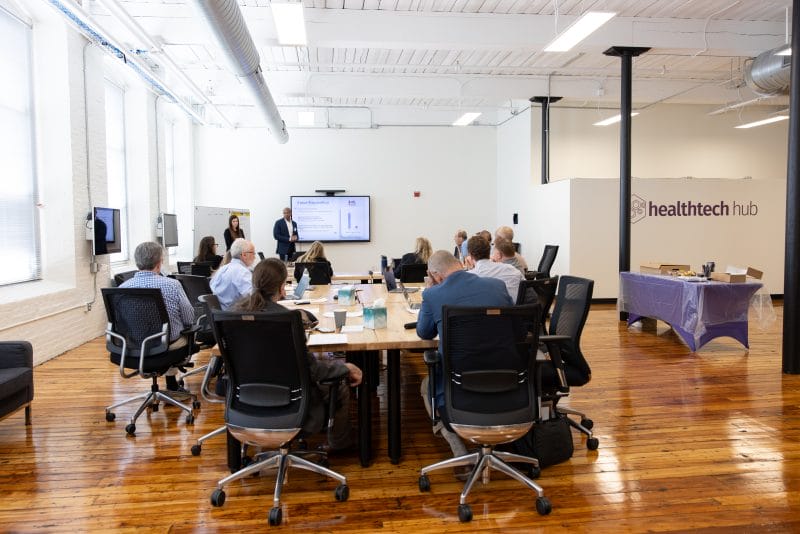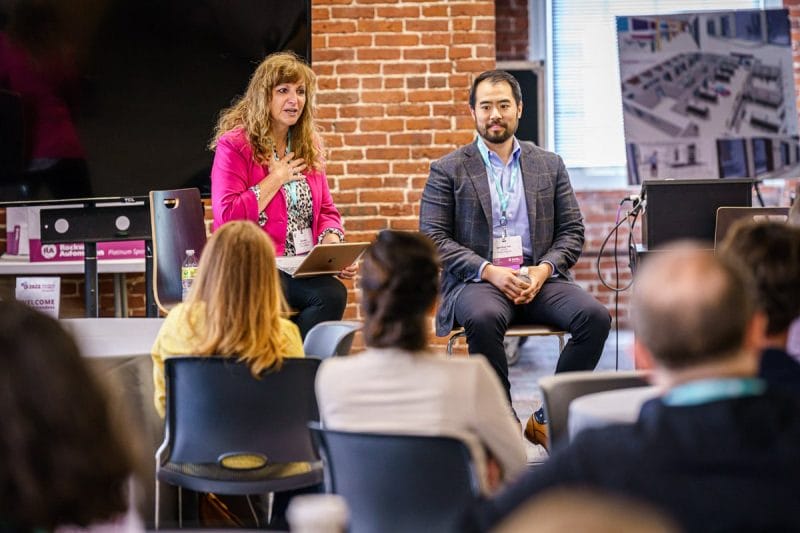Home // Initiatives // BioFab Startup Lab // About BioFab Startup Lab
Catalyzing BioFab Startups
Building and Connecting the Regenerative Manufacturing Ecosystem
BioFab Startup Lab Core Program: Designed to Fit Company Needs
The BioFab Startup Lab Core Program has been thoughtfully crafted to foster startup growth. During this 6-month program, companies will have access to valuable resources, networking opportunities, and curated workshops and resources, all of which can be accessed virtually.
Applications for Cohort 3 are now open through March 17, 2025 – apply now!

BioFab Startup Lab Core Program Offerings
Over the course of the six-month program, companies can take advantage of the following resources:
- Customized Program Development with the BioFab Startup Lab Team to evaluate progress, overcome challenges, and align on next steps.
- Ongoing Educational Opportunities on diverse startup -relevant topics designed to fuel growth and innovation.
- Exclusive Access to BioFabConsulting for tailored expertise to accelerate startup’s regulatory success.
- Direct Access to Executives in Residence (EIRs) for high-level mentorship and strategic guidance from seasoned industry experts and entrepreneurs.
- Dedicated Mentorship to support companies in charting and navigating commercialization pathways and scaling their business effectively.
- Personalized Pitch Coaching to help craft and deliver compelling presentations to investors, potential partners, and stakeholders.
- Leadership Coaching & Specialized Short Courses to enhance leadership capabilities and entrepreneurial skills.
- Guaranteed Opportunity to Participate in the BioFab Investment Summit where startups can connect with key investors and industry leaders.
- Funding for Third-Party Service Providers through a trusted network of vetted experts in legal, marketing, accounting, and more.
- Investor Connections through ARMI’s network of angel investors, VCs, and corporate investors, with personalized introductions where appropriate.
- Ongoing Support through the Startup Lab Alumni Program for continuous growth, networking, and collaboration.
- Access Co-Working Space and Office Facilities in a conducive environment that fosters collaboration and innovation, along with priority access to office and lab spaces at our partner, the UNH Manchester Biotechnology Innovation Center (available for an additional fee).

Selection Criteria
The Startup Lab is dedicated to fostering groundbreaking companies at the forefront of regenerative medicine. This dynamic program accelerates the journey to commercialization by offering a comprehensive suite of support services tailored to meet the unique needs of innovative startups.
Key Startup Lab Program Criteria
- Addressing Market Need: The product must address an unmet or inadequately met medical, market, or industry need.
- Relevant Value Proposition: Value proposition should align with the needs and opportunities of the biofabrication industry.
- Competitive Landscape: A clear understanding of the competitive landscape to identify market positioning and differentiation.
- Technology Demonstration: Sufficient evidence demonstrating the feasibility and potential of the technology.
- Regulatory Pathway: The product should have a clear regulatory pathway, where applicable.
- Scalable Manufacturing: Capable of being manufactured at scale to meet market demand.
- Reimbursement Strategy: A viable reimbursement and/or payment strategy for the product.
- Qualified Team: An experienced team with the necessary expertise to commercialize a given product.
- Company Stage: Pre-Seed, Seed, or Series A.
- U.S. Presence: The company must have a presence in the United States.
Get Involved
Applications for Cohort 3 are now open through March 17, 2025 – apply now!


